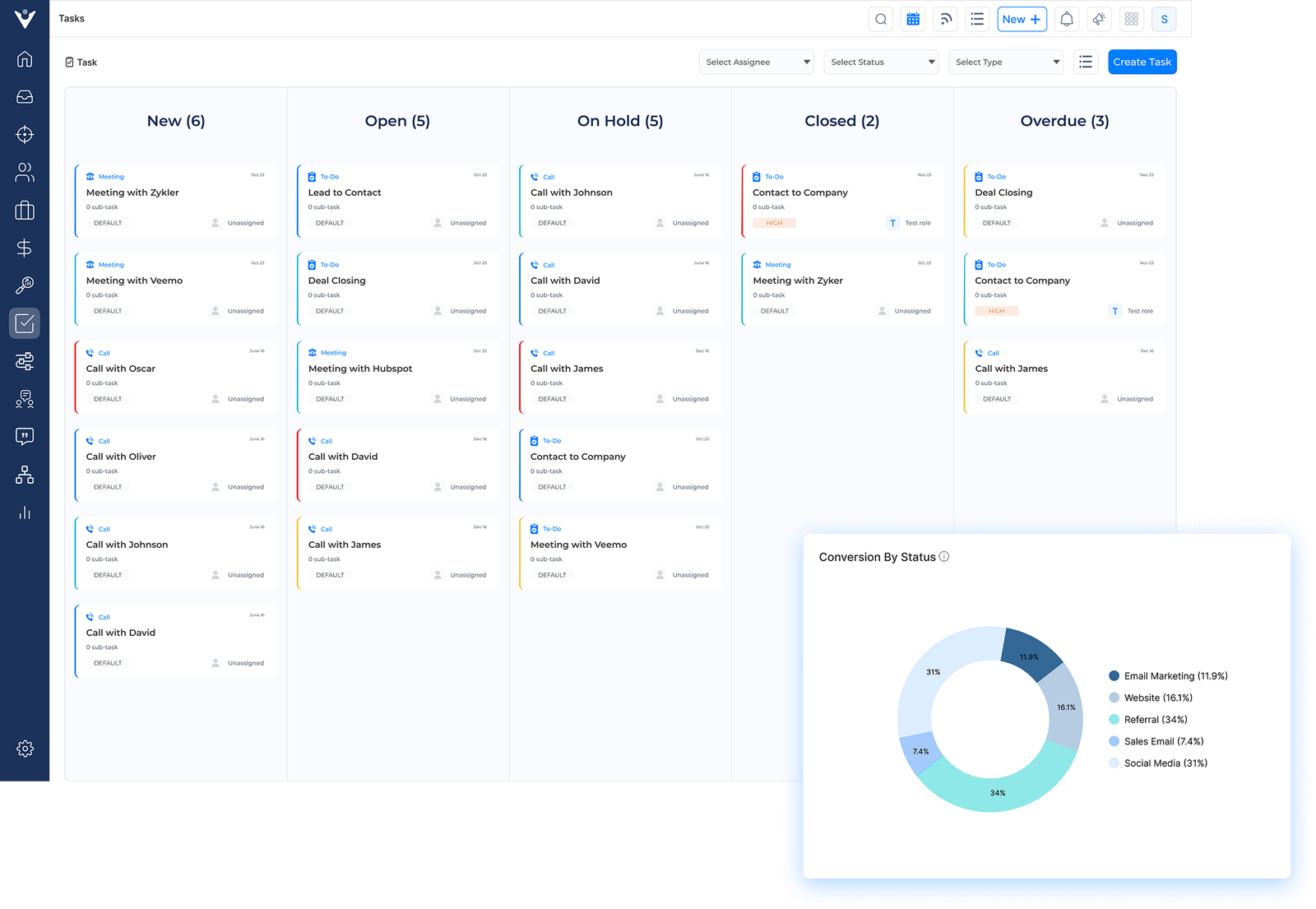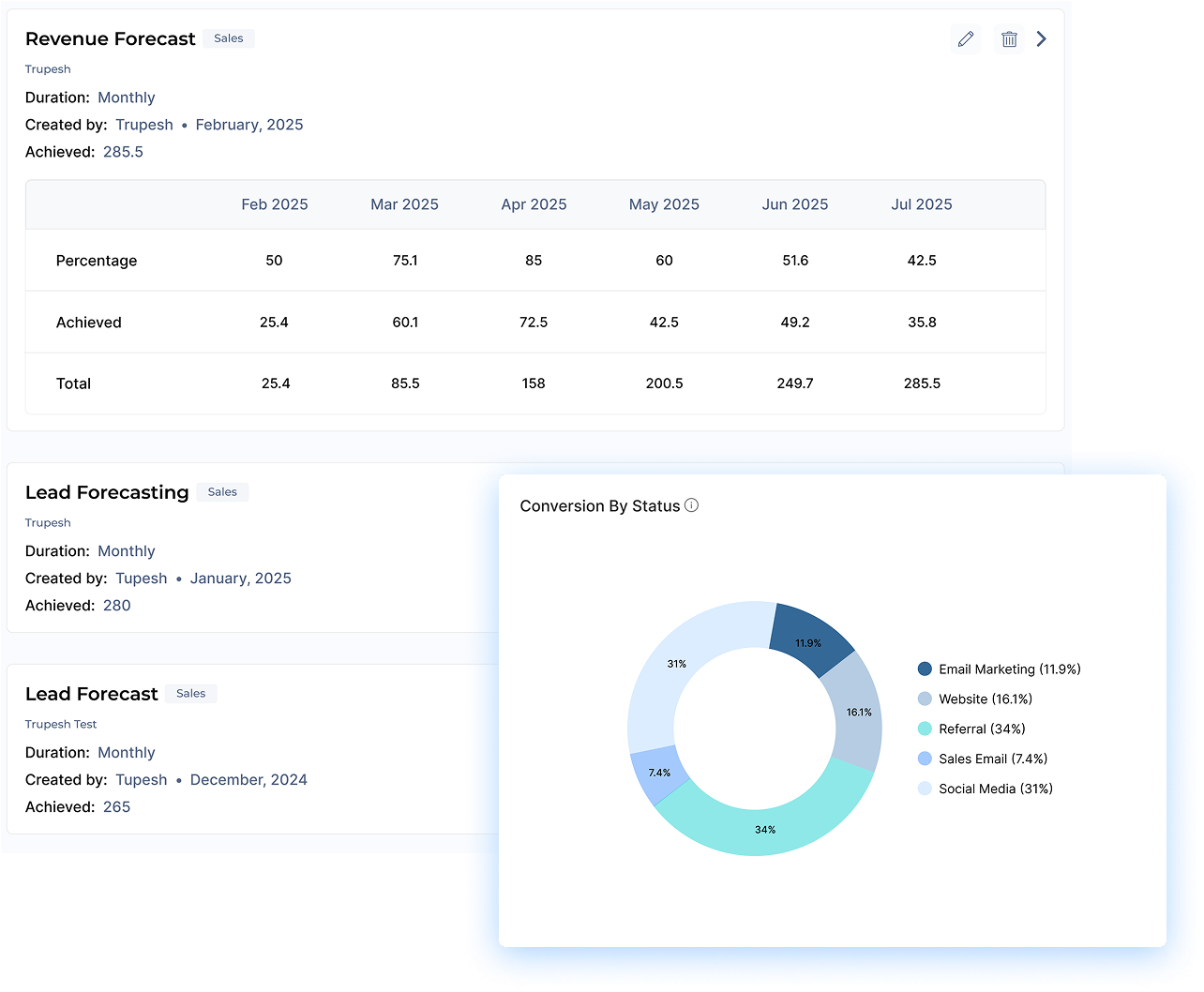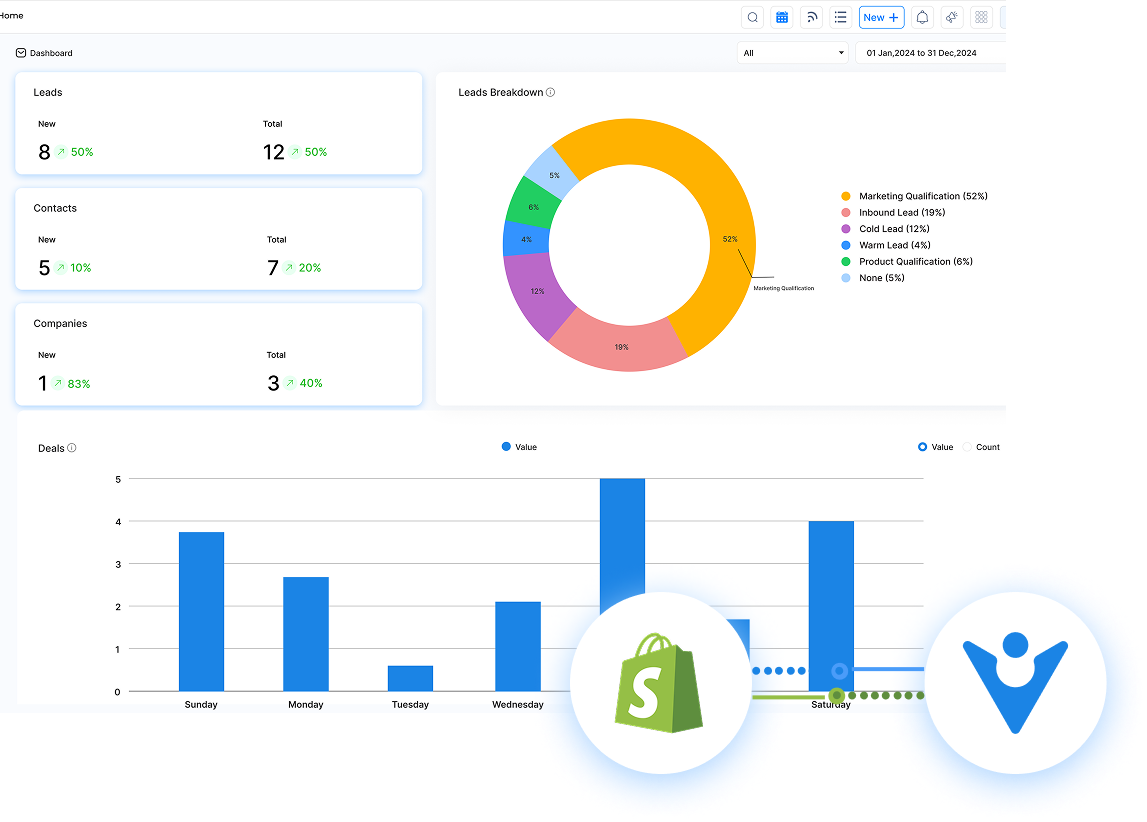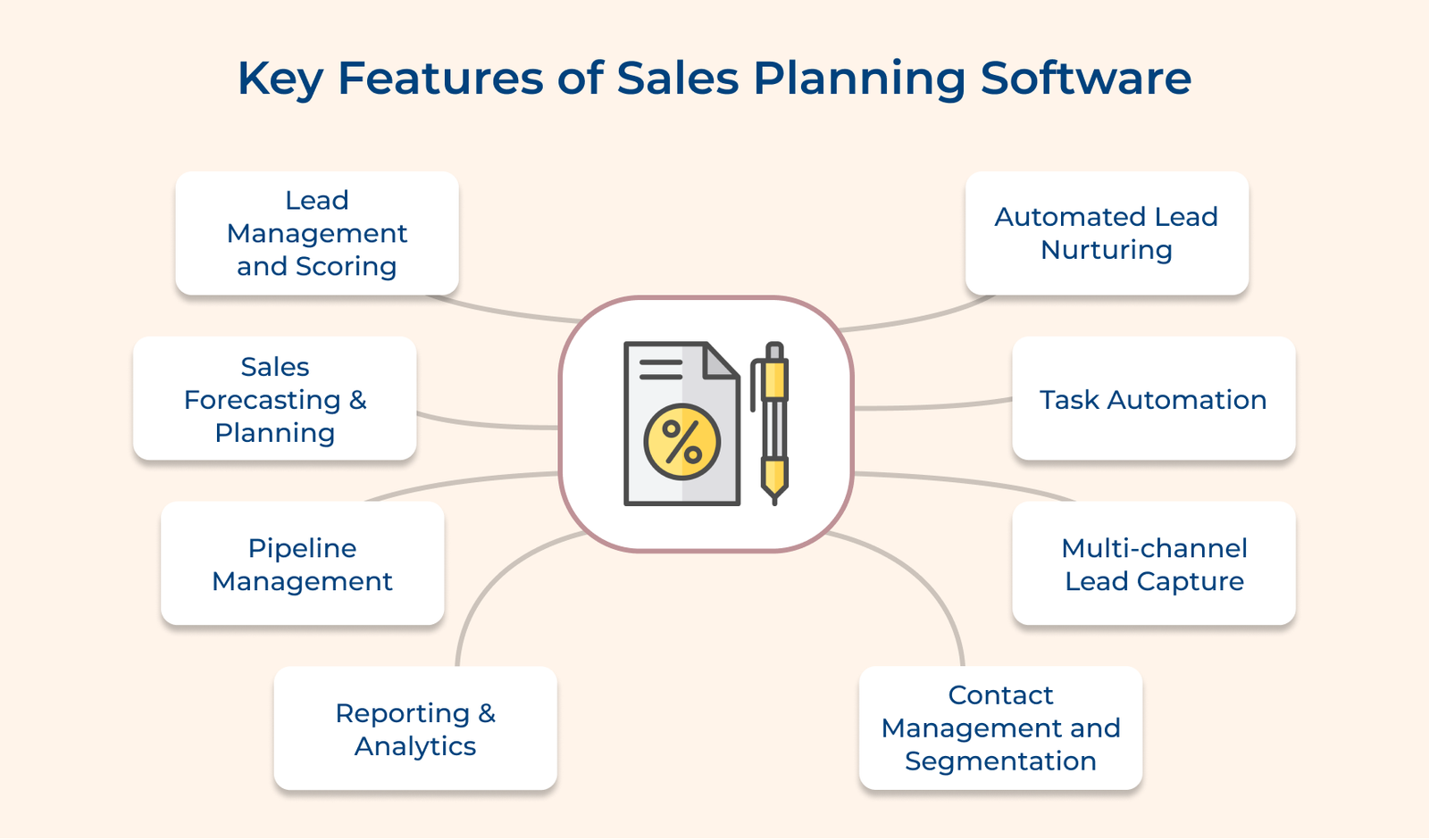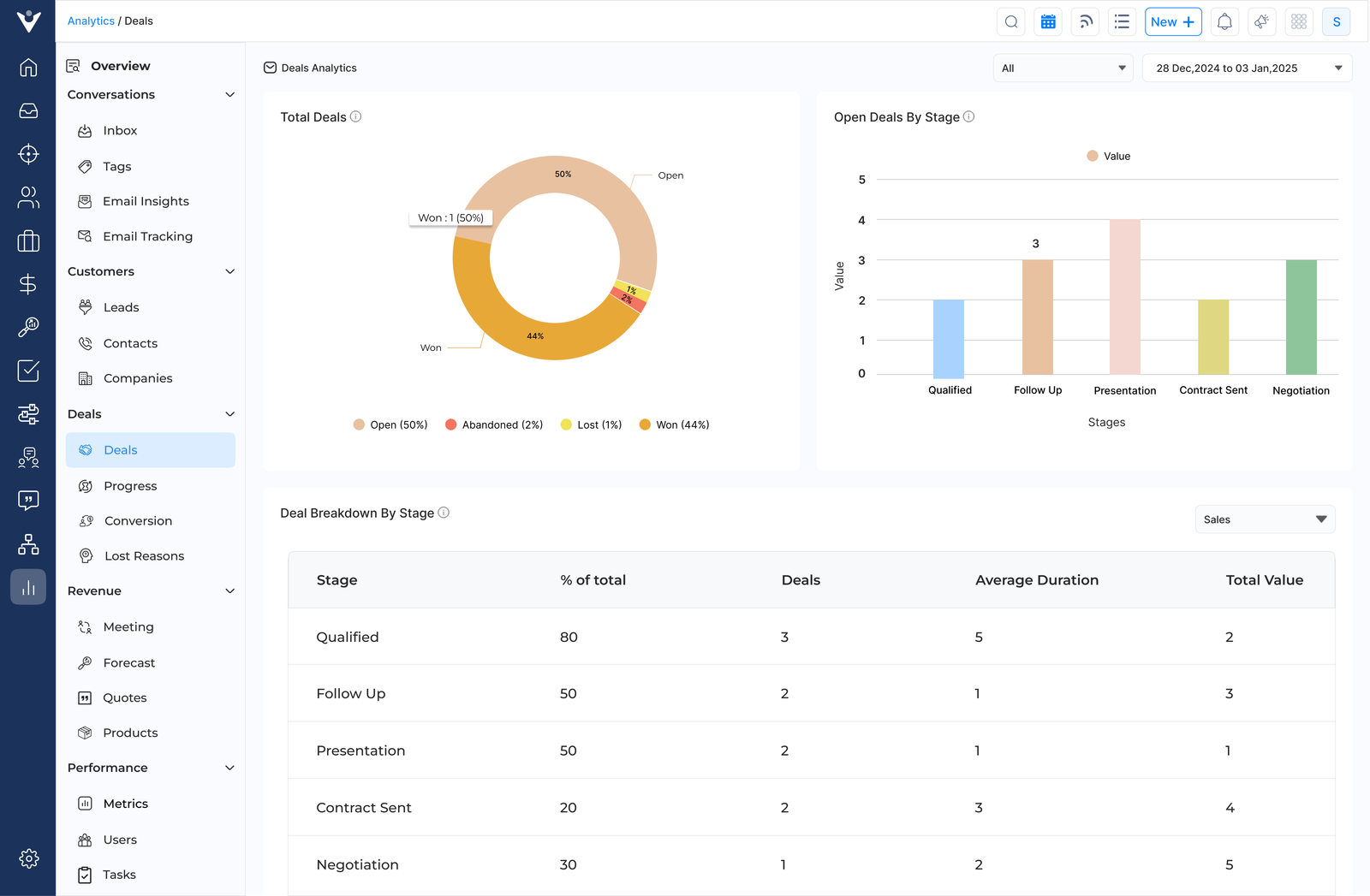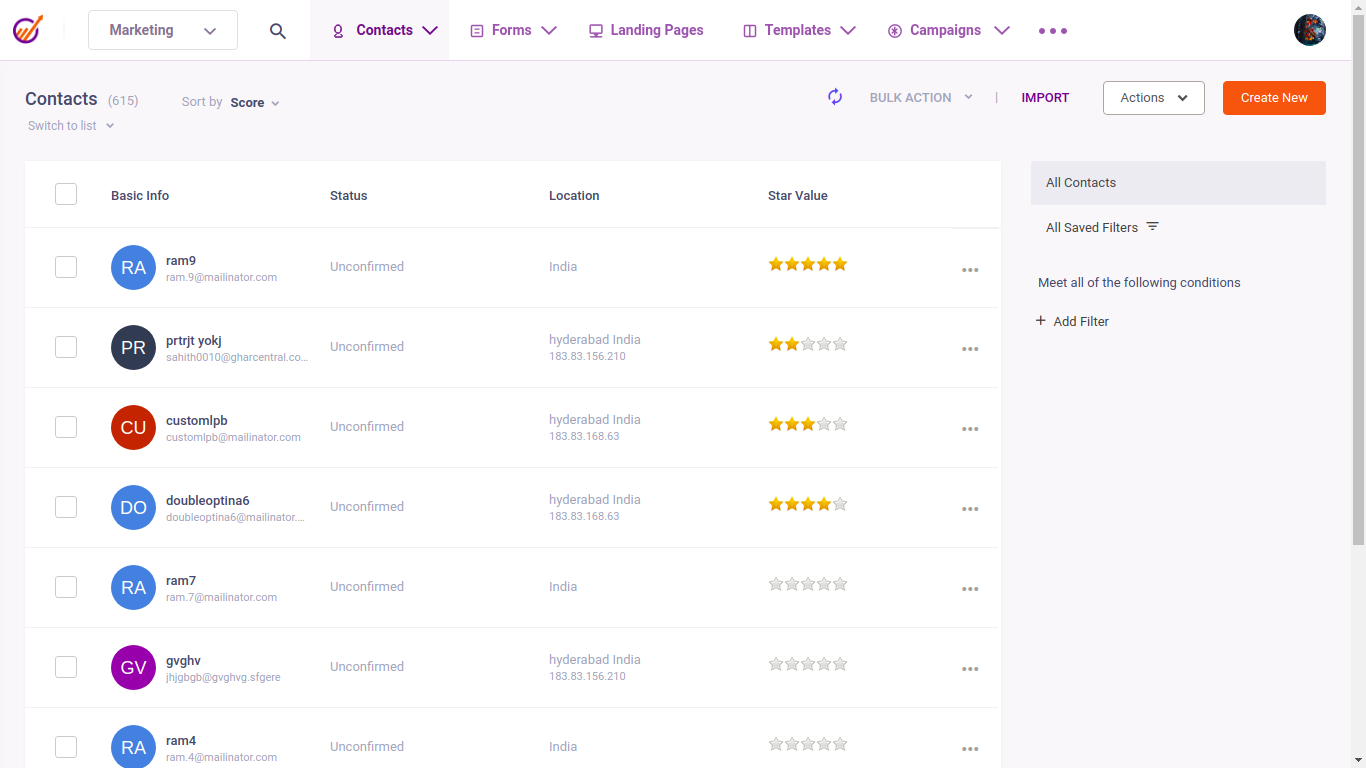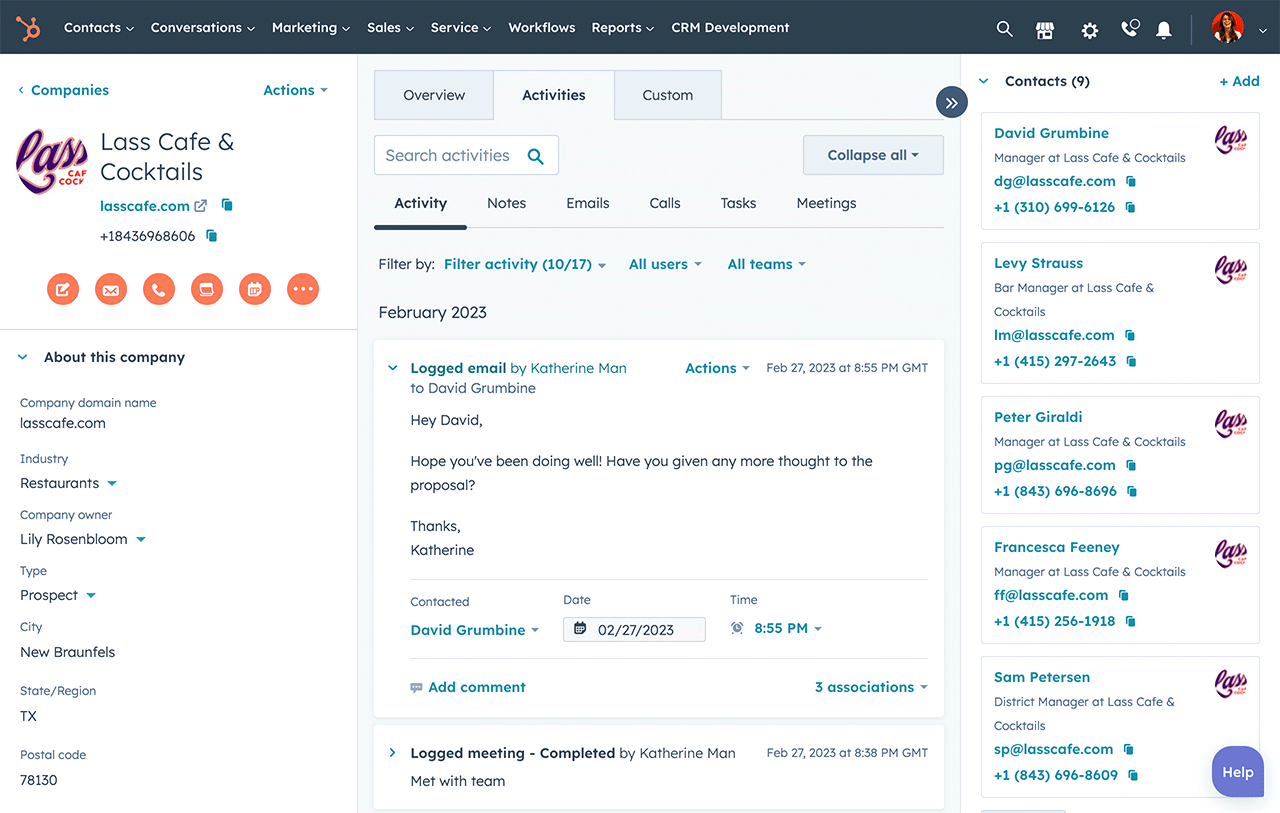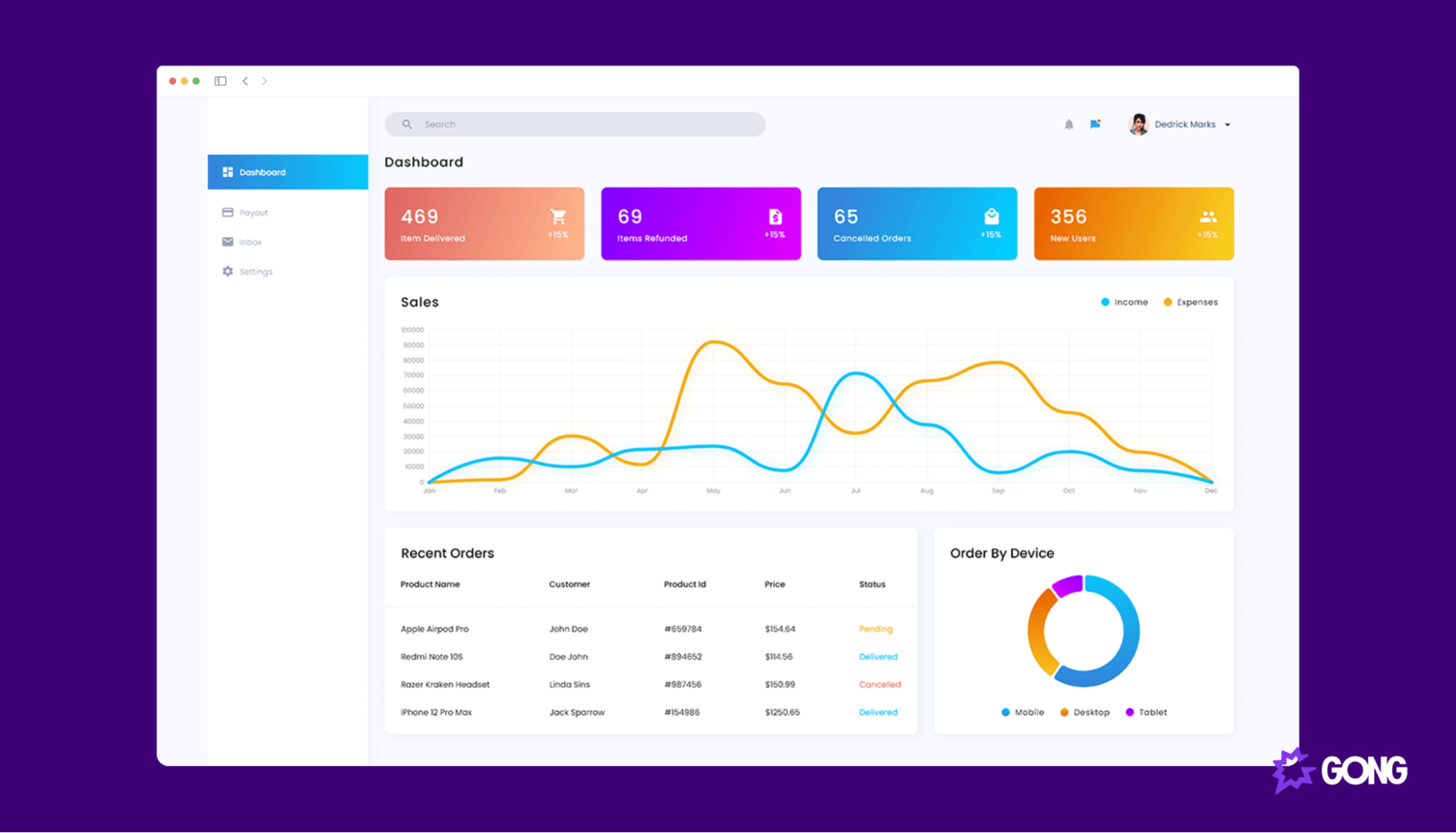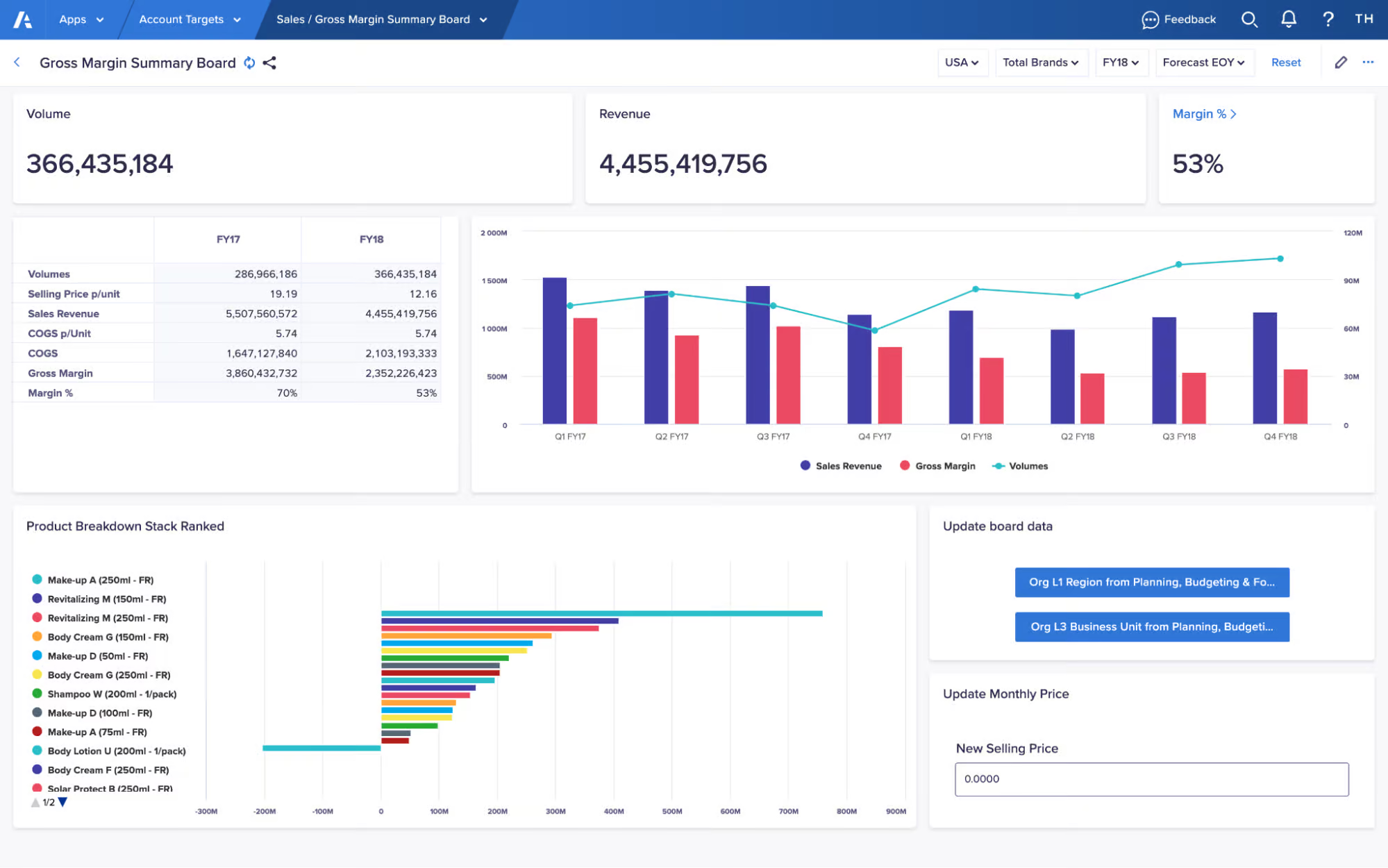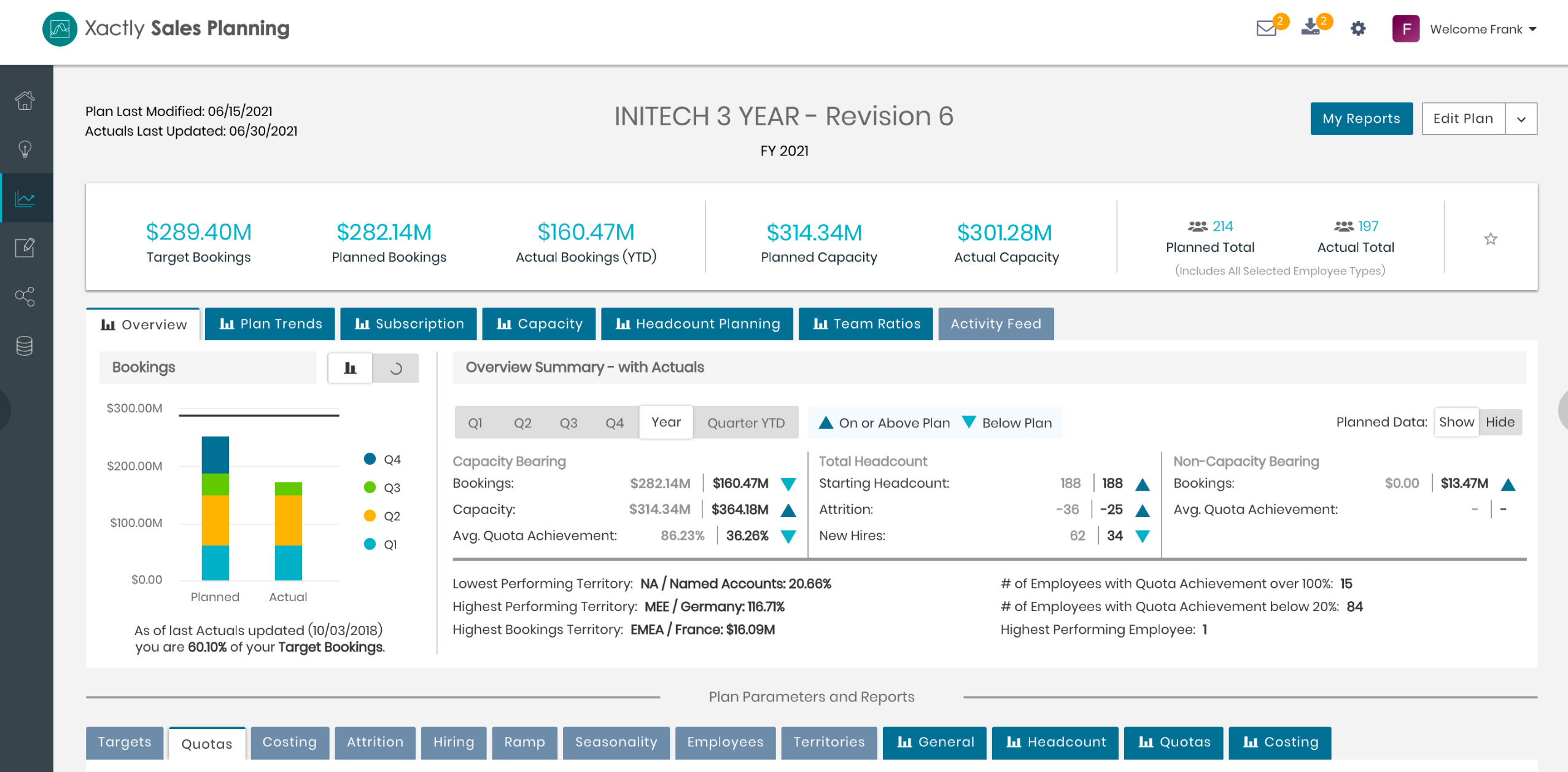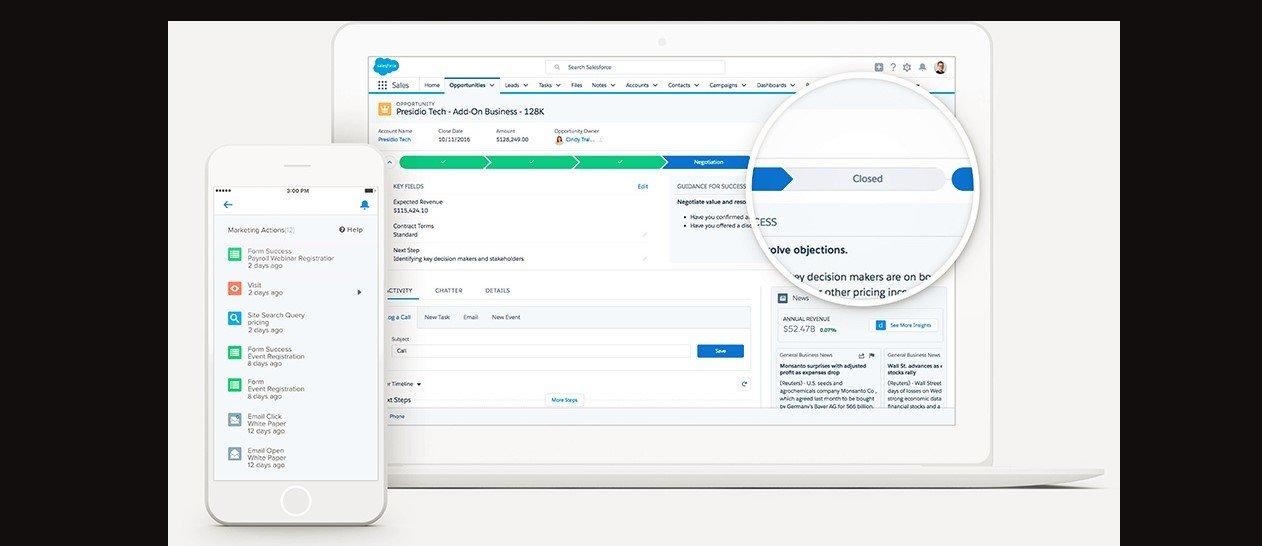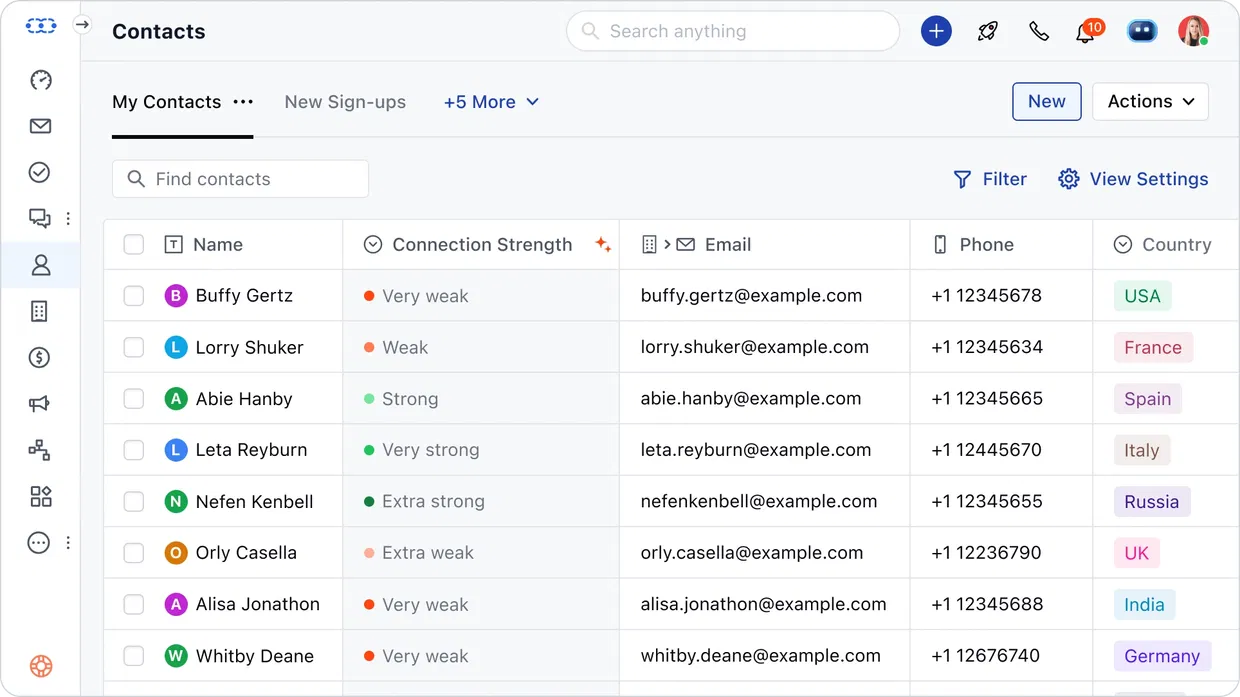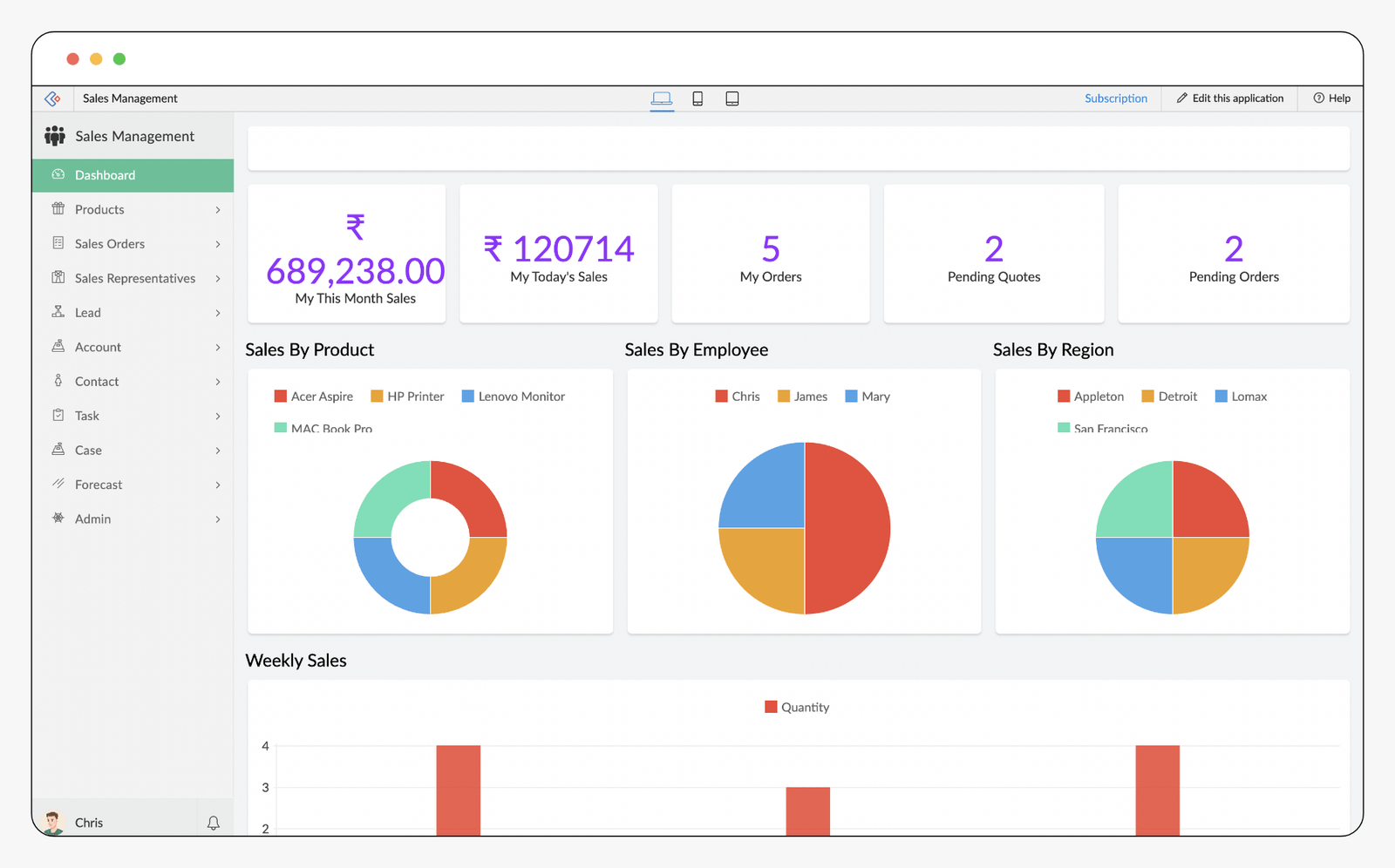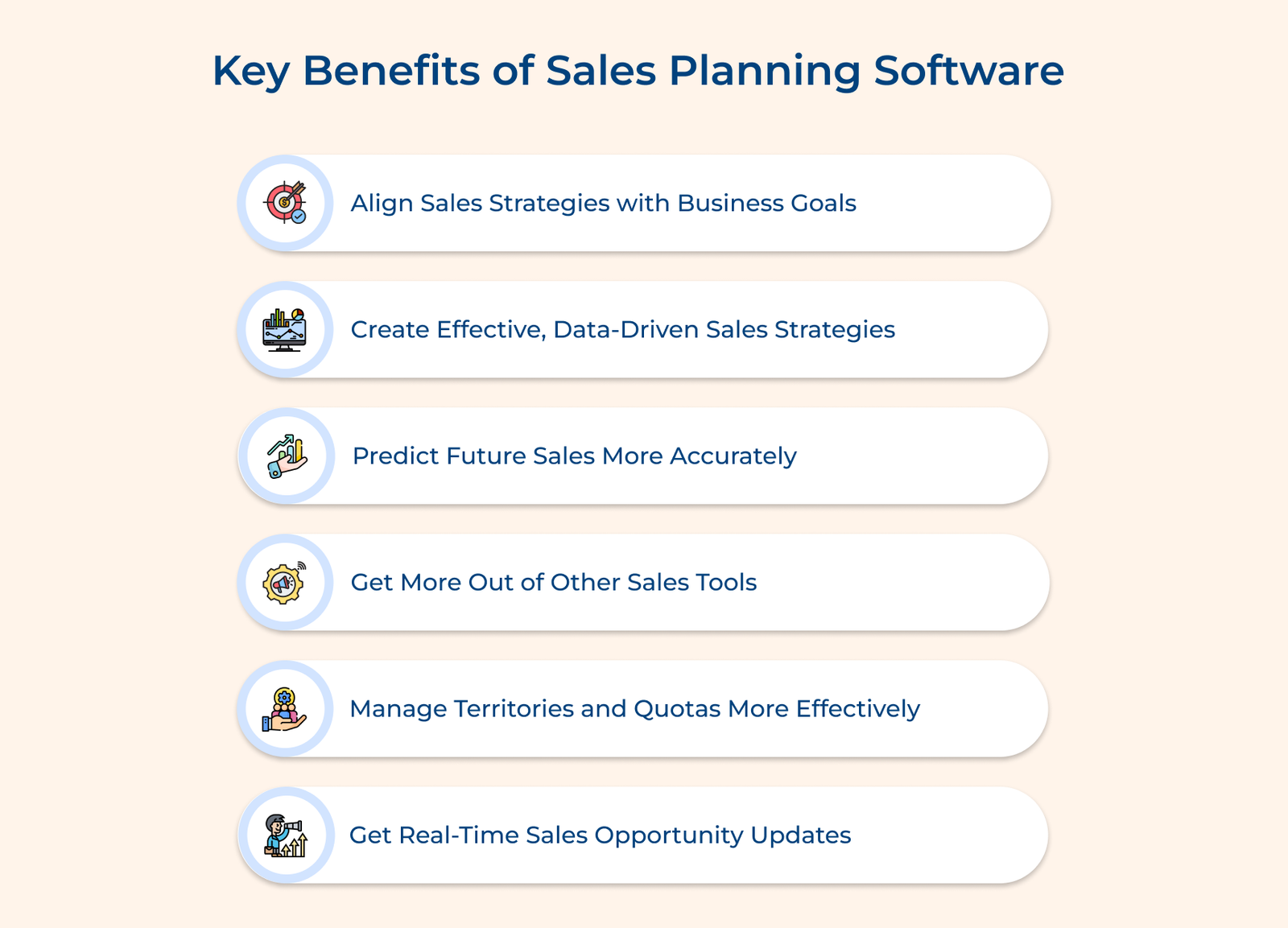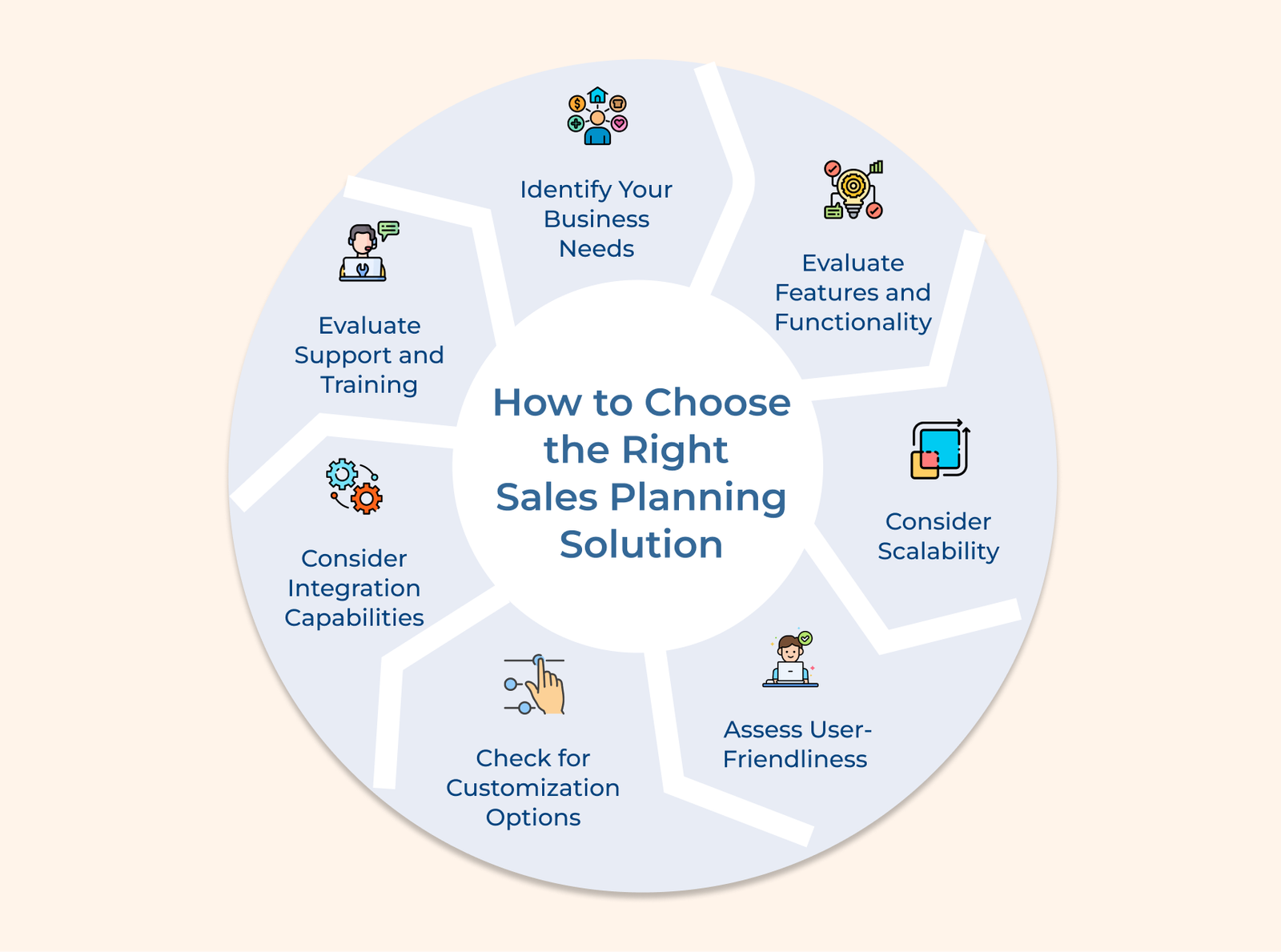1. Lead Management and Scoring
Effective sales planning software centralizes lead information, allowing teams to track and prioritize potential customers. Lead scoring assigns values to leads based on criteria like demographics, behavior and engagement. Sales teams can focus on the most promising prospects, increasing efficiency and conversion rates. Advanced systems use AI to continuously refine scoring models.
2. Sales Forecasting & Planning
Predictive analytics tools within sales planning tools analyze historical data, market trends and current pipelines to generate accurate sales forecasts. The projections help businesses allocate resources, set realistic targets and make informed strategic decisions. Some systems offer scenario planning features that allow teams to model different outcomes based on various factors.
3. Pipeline Management
Visual representations of the sales pipeline provide a clear overview of deals at each stage.
The feature enables sales managers to identify bottlenecks, optimize processes and ensure a healthy flow of opportunities. Advanced pipeline management tools often include stage-specific tasks and reminders to guide salespeople through complex sales cycles.
4. Reporting & Analytics
Comprehensive reporting tools transform raw data into actionable insights. Customizable dashboards display KPIs in real-time, allowing teams to monitor progress and make data-driven decisions. Advanced analytics may include cohort analysis, win/loss ratios and sales velocity metrics to provide a deeper understanding of performance.
5. Automated Lead Nurturing
Automation features in sales planning platform streamline the process of cultivating leads.
The systems can trigger personalized email sequences, social media interactions and other touchpoints based on lead behavior or predefined criteria. Businesses can have consistent communication with prospects without overwhelming the sales team, which keeps the user engaged throughout the buyer’s journey.
6. Task Automation
Sales planning platforms often include workflow automation tools that handle routine tasks like data entry, appointment scheduling and follow-up reminders. It frees up valuable time for salespeople to focus on high-value activities like building relationships and closing deals. Advanced systems may use AI to suggest the next best action for each lead further optimizing the sales process.
7. Multi-channel Lead Capture
Modern sales planning solution integrates with various platforms to capture leads from multiple sources, including websites, social media, events and partner networks. The systems often provide customizable forms and landing pages to maximize lead generation. Some advanced tools use natural language processing to extract lead information from email communications or chat conversations.
8. Contact Management and Segmentation
Robust contact management features allow sales teams to maintain detailed, up-to-date records of all interactions with leads and customers. It includes communication history, preferences and key account information. Advanced systems may include social media integration which provides additional context and insights about contacts.




